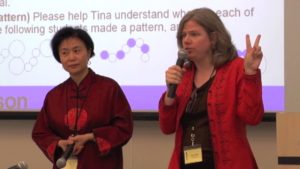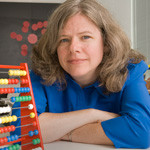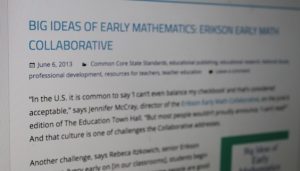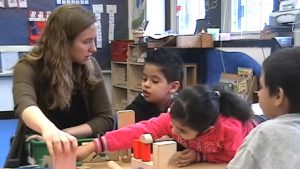(2016). Building math with big ideas. Presentation at the National Association of the Education of Young Children Annual Conference, Los Angeles, CA.
Abstract
The Big Ideas of early math are not maxims to be memorized and repeated by young children; instead, they are the key understandings that teachers of young children should emphasize as they support preschool learning experiences. When teachers have a deep, connected understanding of these Big Ideas, they are prepared to plan for and respond to children’s activities and learning in ways that clarify thinking and emphasize the kinds of knowledge that are generative of later, elementary level math ideas. Our team has identified three Big Ideas related to number sense: 1) The quantity of a small set can be perceived intuitively without counting; 2) Quantity is an attribute of a set of objects and we use numbers to name specific quantities; and 3) Numbers are used in many ways, some more mathematical than others. The first idea, that the quantity of a small set can be intuitively perceived, without counting, helps teachers see the power of subitizing and visual number sense for helping children understand number. The second idea, that number is a way of describing the amount of a set, goes to the purpose of numbers, a topic that is often over-looked in the early childhood curriculum. The third idea, that numbers are used in many ways, reminds teachers that not all examples of numbers carry an equal amount of explanatory information. These ideas will each be fully explored, with multiple examples.





